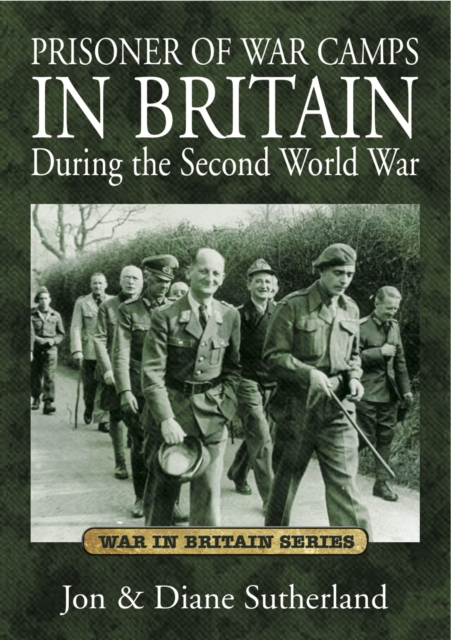
Prisoner of War Camps in Britain During the Second World War Paperback
by Jon Sutherland, Diane Sutherland
Part of the War in Britain series
Paperback
Description
PoW Camps in Britain - Prisoners, murderers, celebrities, escapees... and football
Little has been written about the prisoner of war camps in Britain during the Second World War but Jon and Diane Sutherland’s ground-breaking book reveals the dramas behind the camps, including the prisoners who used to escape and dress up as locals to visit the pub before breaking back in every night; vicious murders and the uneasy – or even romantic – relationship between the locals and the prisoners, with some prisoners returning after the War to help finish the work they started on local churched or in the fields.
The book is full of fascinating stories and personalities such as:
• One of the most famous prisoners of war was Bert Trautmann who later became a goalkeeper for Manchester City, even carrying on playing in the 1956 FA Cup final against Birmingham, despite breaking his neck during the game
• Some German escapees boldly stole a plane but had to return to Britain after realising they didn’t have enough range to get home, despite managing to refuel at another RAF airfield; some successful escapees sent abusive postcards back to their British camp commanders from Germany
• Italian prisoners of war turned two Nissen huts into a chapel at Lamb Holm, Orkney Islands
• Field Marshall Montgomery’s mother used to visit Elmfield Camp, near Portadown, when she was a member of the Red Cross
• Pre-1947, it was illegal for PoWs to have relationships with British women and the women would lose their British nationality and face deportation if they married their PoW boyfriends
• An estimated 25,000 German former prisoners chose to stay in Britain after the War, although 10,000 were repatriated by order of the Home Secretary. Many returned to Britain at harvest time to help the farms where they’d been forced to work as PoWs
• There were just two PoW camps at the beginning of the War and over 600 by the end of it. There is a county-by-county directory of the camps in the book
Information
-
Item not Available
- Format:Paperback
- Pages:224 pages, 60-80
- Publisher:Golden Guides Press Ltd
- Publication Date:17/01/2013
- Category:
- ISBN:9781780950136
Information
-
Item not Available
- Format:Paperback
- Pages:224 pages, 60-80
- Publisher:Golden Guides Press Ltd
- Publication Date:17/01/2013
- Category:
- ISBN:9781780950136






